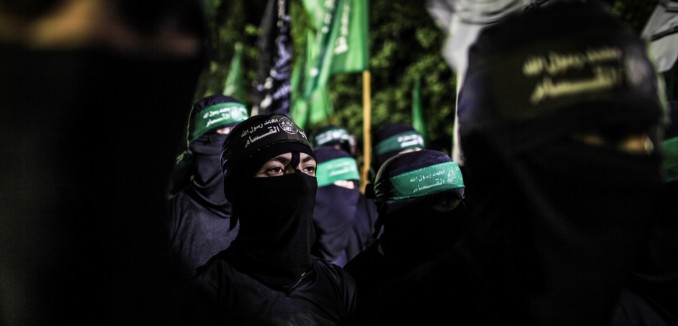The Palestinian Authority and the terrorist group Hamas “are arresting, abusing, and criminally charging” journalists and activists who criticize them, leading to a “chilling effect” on freedom of expression in the Palestinian territories, Human Rights Watch (HRW) warned in a report released on Monday.
“Both Palestinian governments, operating independently, have apparently arrived at similar methods of harassment, intimidation and physical abuse of anyone who dares criticize them,” said Sari Bashi, HRW’s Israel/Palestine director. She added that Palestinians had long sought the acceptance and protection of the international community, and “their leaders should take their treaty obligations seriously.”
HRW cited a number of incidents in its report:
In Gaza, Hamas authorities detained and intimidated an activist who criticized the government for failing to protect a man with a mental disability; a journalist who posted a photograph of a woman looking for food in a garbage bin; and a journalist who alleged medical malpractice at a public hospital after a newborn baby died. In the West Bank, the Palestinian Authority (PA) arrested and charged activists and musicians who ridiculed Palestinian security forces for cooperating with Israel and accused the government of corruption. The offending statements were allegedly made in Facebook postings, graffiti, and rap songs.
Activists and journalists who were abused by Palestinian authorities told HRW that “security officers beat or kicked them, deprived them of sleep and proper food, hosed them with cold and then hot water, and made them maintain uncomfortable positions for long hours.” Two detainees said officials in Gaza forced them to sign agreements not to criticize authorities without sufficient proof, while in the West Bank the men faced criminal charges for defamation and insulting a public official.
HRW noted that the PA’s treatment of journalists put it in violation of two international conventions that it ratified two years ago: the International Convention on Civil and Political Rights and the Convention Against Torture. (At the time that PA President Mahmoud Abbas signed the 15 international conventions and treaties in 2014, his government was in violation of 11 of them.)
Last week, longtime Palestinian affairs correspondent Khaled Abu Toameh reported that both the PA and Hamas were seeking to silence critics ahead of October’s planned municipal elections. The ongoing crackdown on journalists in the West Bank and Gaza reflects the insecurity of their ruling authorities, Abu Toameh charged. “The less politically secure they feel, the more they strip Palestinian journalists of their ability to report how things really stand,” he wrote.
The repression of journalists has long been a problem in the Palestinian territories, which received an unfavorable press freedom score of 84 (with 100 being the worst) from Freedom House in 2015. A survey released by the Palestinian Center for Development and Media Freedoms in 2014 found that “80% of Palestinian journalists in the West Bank and Gaza practice self-censorship of their writing.” A poll published that same year by the Palestinian Center for Policy and Survey Research found that 70 percent of Palestinians did not feel that they could criticize the PA.
Grant Rumley, a research fellow at the Foundation for Defense of Democracies, warned in May that the West’s refusal to challenge the growing corruption and autocratic rule under Abbas “could have a devastating effect on the long- prospects for a viable Palestinian state.”
[Photo: Emad Nassar / Flash90]




